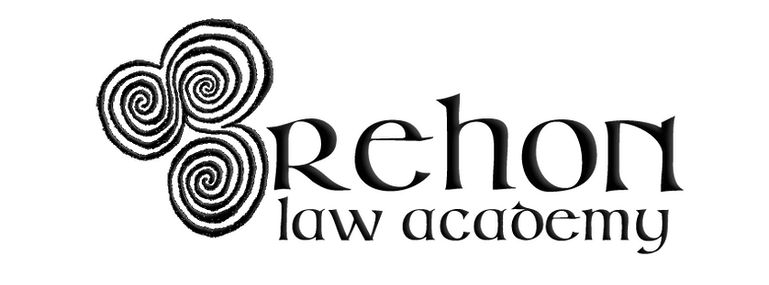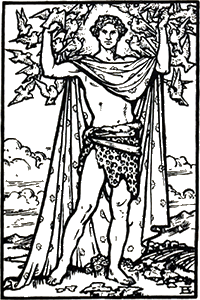First of all, what is tanistry?
You may be aware that today Ireland uses old Irish titles for leaders of government.
For example, the prime minister is referred to as the taoiseach (pr. tee-shock), the parliament is called the dáil (pr. dawl), an old Irish word for an assembly, and the deputy prime minister or second in command is referred to as the táiniste (pr. tawn-ish-ta).
The word táiniste comes from the old Irish custom of tanistry.
Bearing in mind that kings were not appointed through primogeniture in Ireland; i.e. the principal that the eldest male heir of the current king automatically inherits his title, rather they were elected among a number of eligible males (these being called the ríg domhna - meaning, of 'kingly material').
So it was not always clear-cut who would succeed the living king.
Now, the Irish developed a system to prevent rivalry and bloodshed between clans or factions vying for the kingship.
This was the custom of tanistry.
Essentially, a tanist was 'the second', the deputy, and they were selected and named during the reign of the current king - while he was still living. So it was clear, through this custom, who, in fact, would succeed the king upon his death.
So, at this point, we need to keep in mind the two conflicting ways that succession might occur:
1. Primogeniture - the title of king goes to the eldest living male heir.
2. Tanistry - the title of king goes to the most suited, elected candidate among all eligible males, and this is determined while the current king is still alive.
Of course, tanistry it as complete odds with primogeniture and this is why the case of tanistry is so interesting.
It involved a dispute which arose around 1608 between two rivals claiming the right to a large plot of land.
One claimed the right to inherit through the custom of tanistry, the other through primogeniture.
This is perhaps the last great case of Brehon law.
A group of brehons traveled to England to argue the case before the king's bench. The case was drawn out over several years and, in the end, the parties found another remedy.
This case is interesting for several reasons but the principal ones are:
- It demonstrates the difference in attitude towards both inheritance and kingship between the Irish and the English
- It demonstrates the importance of title; in this respect, it shows us why it was so difficult for the English to totally subdue the Irish.
- It provides us with an example of how the English treated native customary law.
- It shows how the Irish custom of tanistry was repugnant and stood in opposition to the agenda of the English crown.
I have sourced the report of the case and made it available on the Brehon Laws of Early Ireland Online Course.
It's a fascinating read that illustrates the nuances between the Gaelic and English legal mindset.
It tells us why it was so difficult (near impossible) for the English to fully conquer Ireland.
And it reveals how deeply our legal traditions were embedded in the Irish psyche even up to the current time.
A contributor to the Brehon Law Academy's Facebook Page, Eugene Fitzpatrick said
"It should be noted that quite often, Irish táinistes were usually the next eligible brother of the current rí, despite the rí having sons, as the king's next brother was older than the princes, more senior and seasoned in wisdom-keeping a more similar mindset to the rí and his father, and kept the pool of ríg damhna wider, as it was sourced at a common great-grandfather or grandfather. Not always, but quite often.
Jim Reid wrote a very interesting paper about this by examining the lines of succession in the kings of Osraige, where a brother more often than not came to the throne, as typical across the island during the 8th through 11th centuries.
With the adoption of the Tudor policy of Surrender and Regrant, tanistry was swapped for primogeniture, as the titles became English -at least on paper- where brotherly succession was an impossibility if the title holder already sired male offspring.
This also reduced the eligible pool of successors, and caused a great decline in the number of sitting chiefs, as primogeniture greatly increases the chances that a line of males will die out, and their titles and claims with them.
Males must produce more males- and it was an ironic twist of history that Henry VIII was the one who initiated surrender and regrant, as his reign was overshadowed by the obvious problems which primogeniture creates.
His need for a male heir created a whole branch of Protestantism from the Henritian Schism.
Anglicanism would have never existed if the English had a system like tanistry.
History is strange that way."
Indeed, it is.














